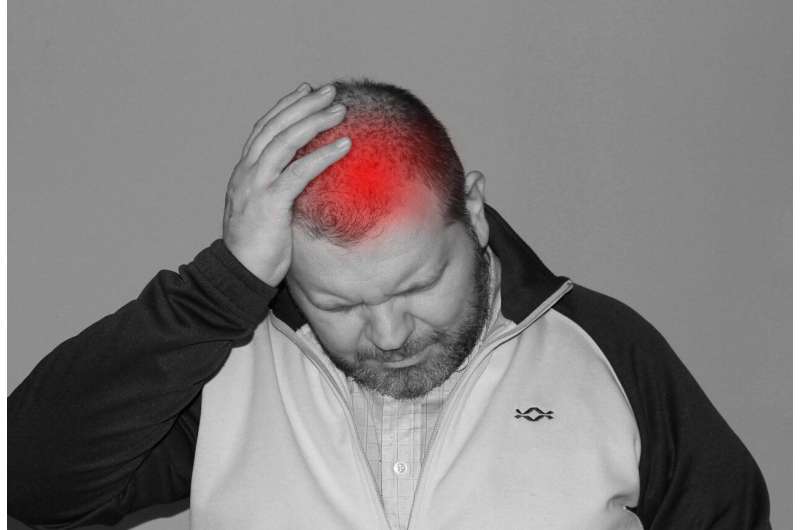This article has been reviewed according to Science X's editorial process and policies. Editors have highlighted the following attributes while ensuring the content's credibility:
fact-checked
trusted source
proofread
New drug may help prevent migraine for difficult cases

The drug atogepant may help prevent migraines for people who have had no success with other preventive drugs, according to a preliminary study released April 20, 2023, which will be presented at the American Academy of Neurology's 75th Annual Meeting being held in person in Boston and live online from April 22-27, 2023. The study involved people with episodic migraine, which is defined as having up to 14 headache days per month with migraine characteristics.
Atogepant is a calcitonin gene-related peptide receptor antagonist, or CGRP inhibitor. CGRP is a protein that plays a key role in starting the migraine process.
"These results are exciting, as migraine can be debilitating, and this treatment led to fewer days with migraine for people who had already tried up to four other types of drugs to prevent migraine and either had no improvement or had side effects that outweighed any benefits," said study author Patricia Pozo-Rosich, MD, Ph.D., at Vall d'Hebron University Hospital in Barcelona, Spain.
The study involved 309 people who had at least four migraine days during the month before the study and who had tried at least two classes of drugs for preventing migraine without improvement. Of those, 44% had previously taken three or more classes of preventive drugs with no success.
For the study, half of the participants took 60 milligrams of atogepant once a day as a pill and the other half took a placebo for 12 weeks.
Those taking the drug had an average of four fewer days with migraine per month from the start of the study to the end, while those taking the placebo had about two fewer days with migraine per month.
Those taking the drug also showed improvement compared to those taking the placebo in how often they needed to take medication to stop a migraine attack and in how many people had a reduction of 50% or higher in how many days per month they had migraines.
The most common side effects were constipation, which occurred in 10% of those taking atogepant and 3% of those taking the placebo; and nausea, which occurred in 7% of those taking the drug and 3% of those taking the placebo.
"People who thought they may not find a way to prevent and treat their migraines may have hope of finding relief with a tolerable oral easy-to-use drug," Pozo-Rosich said. "This treatment was safe, well-tolerated and effective for people with difficult-to-treat migraine."
A limitation of the study was the relatively short length of three months. Pozo-Rosich added that more research will be needed to assess the long-term efficacy and safety of atogepant.


















